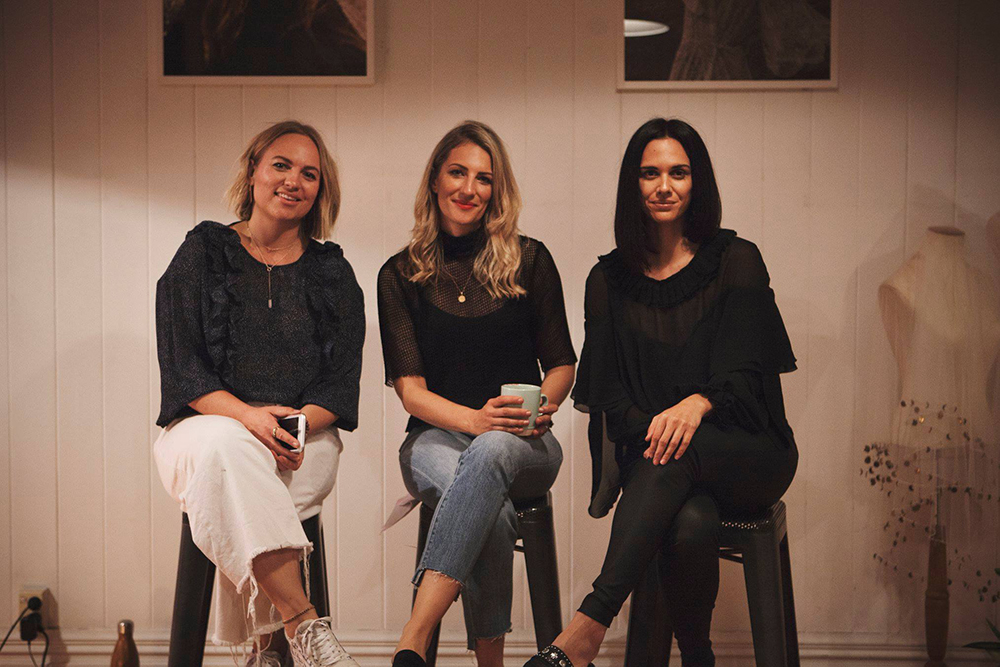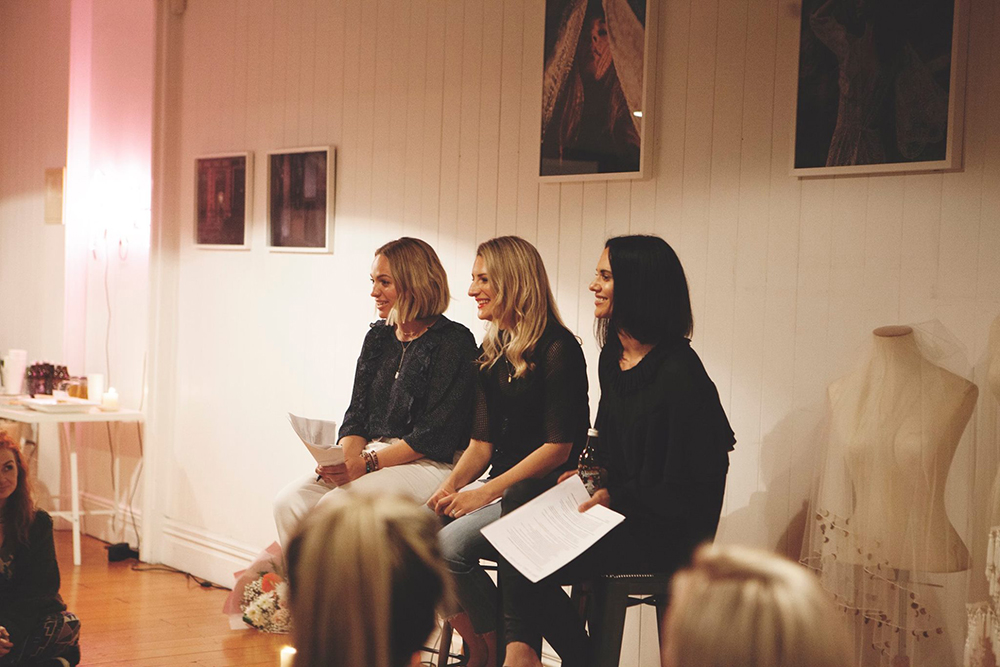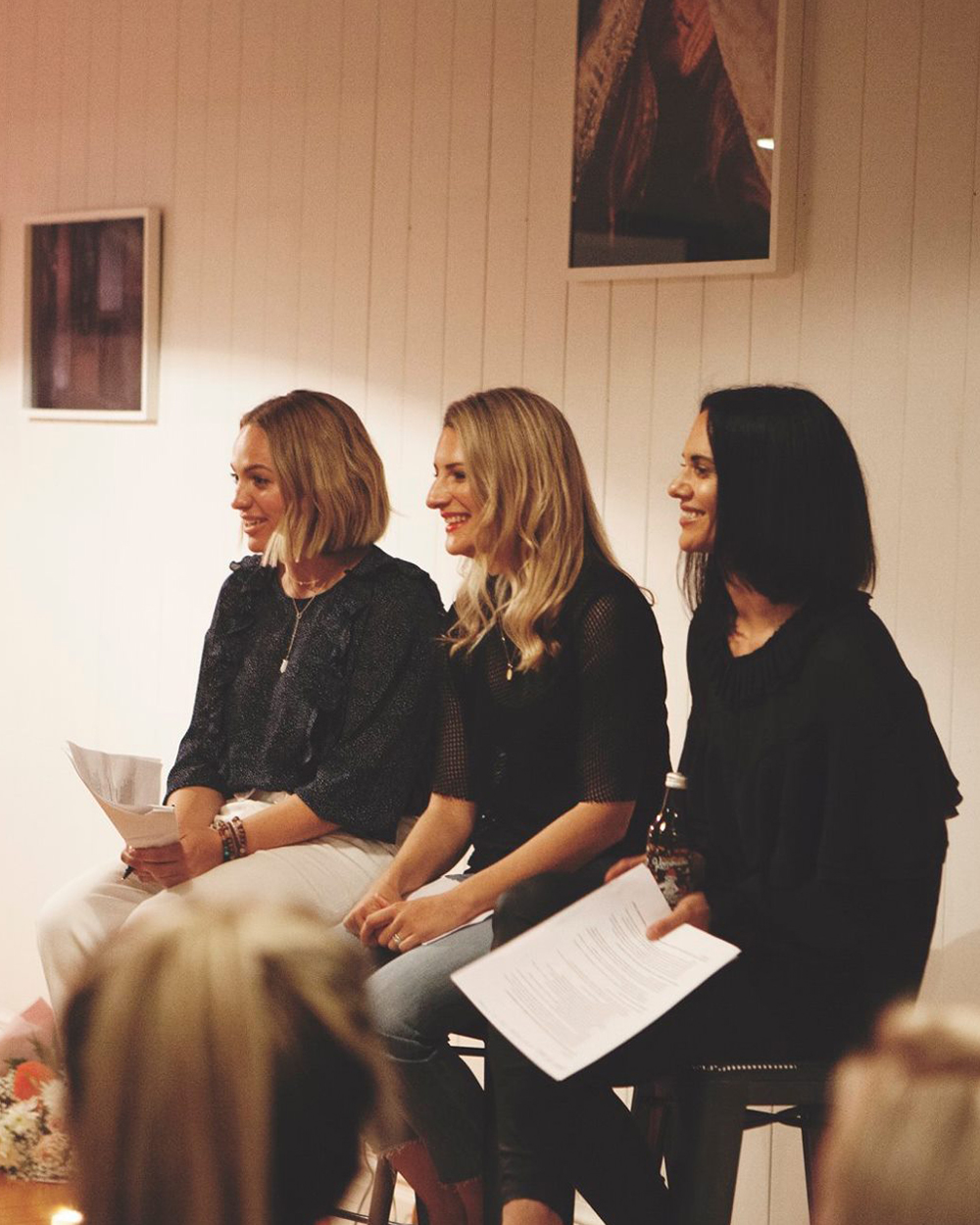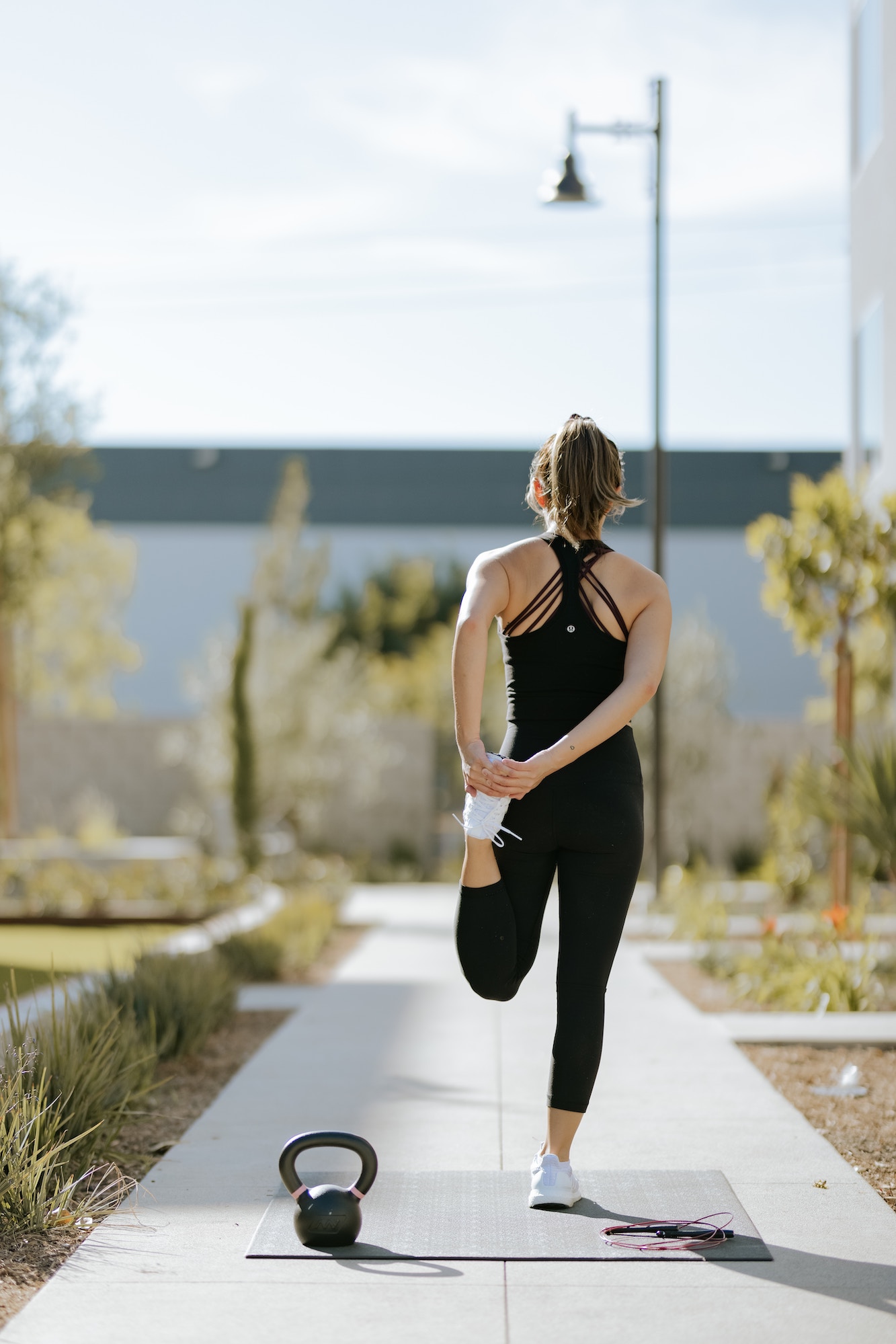We asked three open and honest Kiwi women to share the tips they use for managing their own anxiety – from meditation to self-care, exercise and more.
Read on to learn how Kristy von Minden, Anna Squelch and Victoria Fruean support their mental and physical wellbeing while dealing with their anxiety. Please remember, these are tips that come from the personal experiences of these women and should not be taken as professional advice. If you or someone you know needs expert help, we encourage you to make an appointment with your doctor or psychologist.

Kristy von Minden, mindfulness teacher and founder of Mind Bright @mymindbright
Give meditation a go
Meditation was a game changer for me and helped me unwind years of chronic pain and anxiety. It has been proven to change the structure and function of the brain in as little as eight weeks. Meditation has countless proven benefits, but in relation to anxiety, it actually decreases the size and connectivity of the amygdala, which is a part of our brain responsible for fear and stress. If you are just starting out, try one of the guided apps below until you get used to the feeling of meditating. It can be uncomfortable at first, but remember, the point is not to stop your thoughts, just to notice them and then bring yourself back to the meditation anchor (usually the breath, a mantra or scanning the body). Try committing to 10-15 minutes a day and notice how you feel.
Try these meditation apps:
Headspace
Calm
Mindfulness: Finding Peace a Frantic World
Practice self-compassion
Often we are beautifully kind and compassionate to our friends and loved ones, but then we mercilessly judge and criticise ourselves with a stream of internal dialogue that is just plain nasty. Next time you catch your inner mean girl (meditation helped me hone my awareness of when it was happening), try some loving kindness instead. Practice talking to yourself the way you would a friend or a small child. Research tells us self-compassion helps calm our nervous system by soothing our fretting minds and lowering our experience of anxiety or depression overall. Those who are less critical are also likely to experience greater optimism, happiness and motivation.
Anna Squelch, holistic health coach and retreat facilitator at Conscious World Wellness@consciousworldwellness
Up your self-care game
When I’m feeling anxious, I check back in with my self-care practices. Have I been eating nutrient-dense foods? Have I been outside in nature? Have I been sleeping well? Am I breathing right down into my belly? Have I been saying no to things I don’t want to do? Overwhelm is the biggest trigger for my anxiety, and I often find when I’m the most anxious, it’s because I’ve packed too much into my schedule; doing things to please other people at the expense of myself.
Be honest with those around you
When I finally opened up about how I was feeling, to my friends and my family (and even strangers, on my blog!), I was met with overwhelming support. It was a little harder in my workplace, but that is only because most workplaces are ill-equipped with the knowledge of how to treat employees with mental illness. I want to play a role in changing that. Voicing my illness and my vulnerabilities made me feel so much lighter and less alone. It’s unbelievable how many people are suffering quietly.

Victoria Fruean, holistic health and body image coach@victoriafruean_healthcoach
Eat, drink and move
What we eat (or don’t eat), what we drink and how we move our bodies has a significant impact on anxiety, stress levels and feelings of calm. As working women, we rely on chocolate for an afternoon pick-me-up, skip morning tea while in meetings, rely on coffee for energy and alcohol to wind down, use high-intensity cardio for stress release and forgo sleep for work or a social life. However, these seemingly small and much-loved habits can put more pressure on our nervous system, increasing stress hormones adrenaline and cortisol making those anxious feelings even worse. Experiment with more mindful forms of movement like yoga and pilates, reduce processed and high-sugar foods, increase fresh whole foods, avoid long periods of time without food, reduce coffee and alcohol and prioritise sleep. I noticed huge improvements in my mood and anxiety when I adopted these practices and looked at my habits from a ‘will this help or hinder anxiety?’ perspective.
Ask for professional help
When I ‘came out’ about my anxiety experience, I realised just how many talented, smart, outwardly put-together women were suffering in silence – too scared to seek professional help or not feeling that their feelings were valid. Working with a psychologist was a game changer in helping me to understand and manage my anxious feelings. I had a non-judgemental space to express what I was going through without hearing ‘just don’t stress’ or ‘stop worrying’ (the worst things to say to someone with anxiety!) and was given simple strategies to manage it daily. Prior to getting professional help, I put a lot of pressure on myself to get over it or solve the issues on my own, which further added to the anxiety. Getting out of my own way, sucking up my pride and making that call to the psychologist was one of the best things I’ve done.






